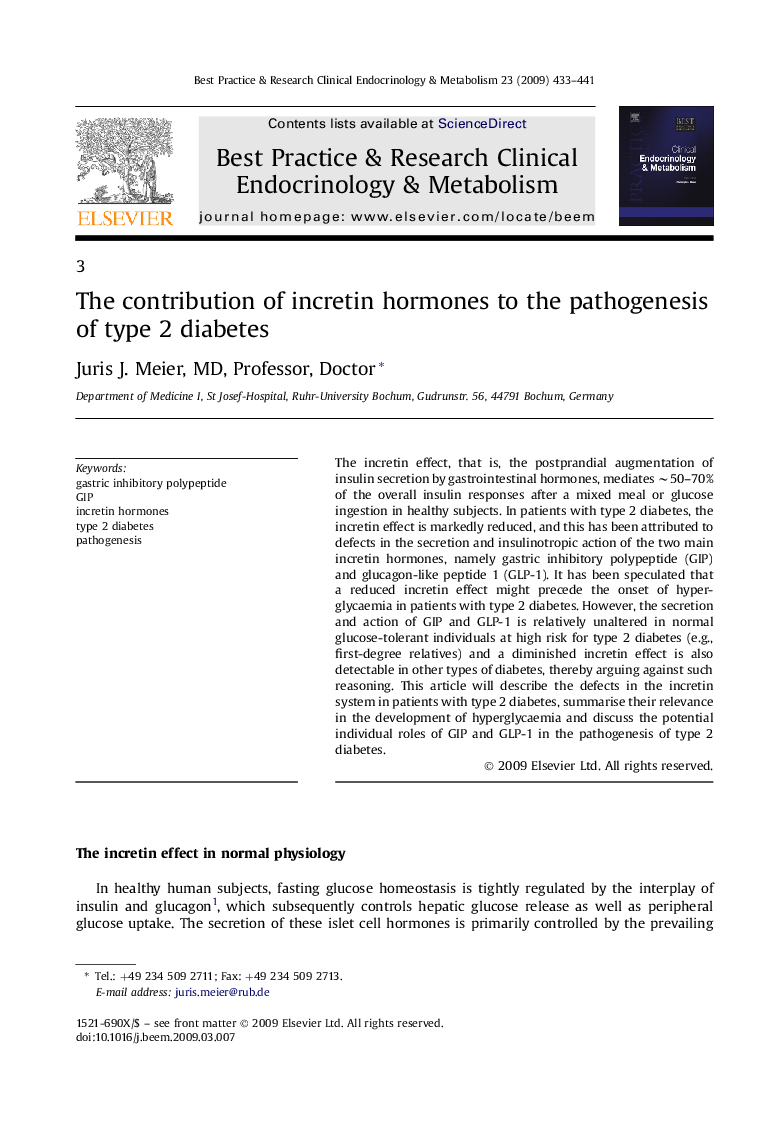| Article ID | Journal | Published Year | Pages | File Type |
|---|---|---|---|---|
| 2792177 | Best Practice & Research Clinical Endocrinology & Metabolism | 2009 | 9 Pages |
The incretin effect, that is, the postprandial augmentation of insulin secretion by gastrointestinal hormones, mediates ∼50–70% of the overall insulin responses after a mixed meal or glucose ingestion in healthy subjects. In patients with type 2 diabetes, the incretin effect is markedly reduced, and this has been attributed to defects in the secretion and insulinotropic action of the two main incretin hormones, namely gastric inhibitory polypeptide (GIP) and glucagon-like peptide 1 (GLP-1). It has been speculated that a reduced incretin effect might precede the onset of hyperglycaemia in patients with type 2 diabetes. However, the secretion and action of GIP and GLP-1 is relatively unaltered in normal glucose-tolerant individuals at high risk for type 2 diabetes (e.g., first-degree relatives) and a diminished incretin effect is also detectable in other types of diabetes, thereby arguing against such reasoning. This article will describe the defects in the incretin system in patients with type 2 diabetes, summarise their relevance in the development of hyperglycaemia and discuss the potential individual roles of GIP and GLP-1 in the pathogenesis of type 2 diabetes.
